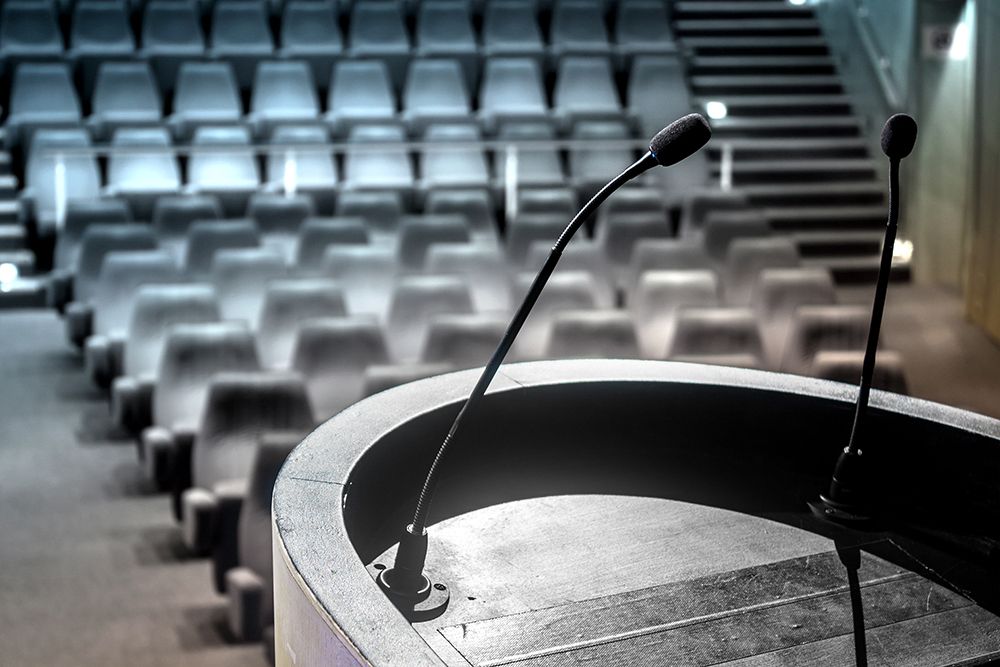If I told you that you have been conditioned to accept bad sound… would you think that was a lie? Every time you watch a television show or movie that includes a scene involving a live microphone situation, what is the first thing you always hear? Feedback. I’m sure this is just to relay to the viewer that a live public address system is in use, but should we really be reminded each time? The fact is that with trained professional audio teams and equipment, this feedback should never happen. It always happens in movies even when the president or high public office speaks. You would think that audio engineer assigned to the president of the United States would be qualified to eliminate this simple nuisance.
Another example, chances are that you have attended something in your life where there was a speech or presentation where feedback was present. Was this a result of “bad sound”? Not entirely. It is probably a combination of several things, such as, inadequate equipment for the space, an inexperienced person tasked with “running sound”, and improper microphone placement and usage techniques.
The truth is that this can be avoided in 99% of these situations. Hiring a qualified, experienced sound engineer, not just someone who dabbles in electronics. The down side to this is that in most situations this simply isn’t possible. The reason these people are there in the first place is because there is no one else. The difference in these people and a real sound engineer is the education. Their people only lack the knowledge and experience that comes with time.
Another reason for bad sound is equipment. Not all sound equipment is created equal. There are many components in the signal chain that depend on each other to work properly and as designed. Each sound provider you consider has different types and amounts of equipment. The worst thing you can do as a sound provider is show up with not enough sound power or coverage. The result is usually an overdriven, pushed more than it should be, wall of mud. Nothing stands out as clear and audible. Diagnosis… Bad Sound. The reason for this is normally budget. We would love have ten million in inventory for our disposal, that just isn’t the case, at least when you first start a business.
Something else that may cause bad sound is the venue itself. Large concrete box buildings are sometimes rather difficult to get a good mix in. If your equipment isn’t capable of making necessary adjustments to “treat the room,” your job will be somewhat more difficult. What I mean by "treat the room" is having the ability to negate the high end bouncing, the low end bass trapped in the corners and high ceilings to compensate for the rooms natural bad acoustics.
Taking these factors into account as well as many more possible scenarios, you can see where bad sound is somewhat expected. With proper equipment and personnel much of this, even all of it, can be eliminated. When you hire a professional, expect professional results. When comparing, take into consideration on what exactly it is you are getting. When your months of hard work are on the line, would you rather leave it up to a good deal or a proven result?
The old adage “you get what you pay for” is true for a reason. When your event means everything to you, it should mean the same to everyone you bring on board from caterer to advertising to sound and lighting providers. Don’t settle for “BAD SOUND”. Expect great sound and call on someone who knows the difference and knows how to provide it.

